第63章
"The assembly met and the union orator got up; he was a preacher of the Gospel, and carried the weight of that office. Christianity, as well as science, seemed to rise against us in his person. He made a long and eloquent speech, based on the intelligent surmises and popular prejudices that were diffused in a hundred leading articles, and in letters to the editor by men and women, to whom history was a dead letter in modern controversies; for the Press battled this matter for two years, and furnished each party with an artillery of reasons, _pro_ and _con._"He said, 'Woman's sphere is the hearth and the home: to impair her delicacy is to take the bloom from the peach: she could not qualify for medicine without mastering anatomy and surgery--branches that must unsex her. Providence, intending her to be man's helpmate, not his rival, had given her a body unfit for war or hard labor, and a brain four ounces lighter than a man's, and unable to cope with long study and practical science. In short, she was too good, and too stupid, for medicine.'
"It was eloquent, but it was _'a priori_ reasoning, and conjecture _versus_ evidence: yet the applause it met with showed one how happy is the orator 'qui hurle avec les loups.' Taking the scientific preacher's whole theory in theology and science, woman was high enough in creation to be the mother of God, but not high enough to be a sawbones.
"Well, a professor of _belles-lettres_ rose on our side, not with a rival theory, but with facts. He was a pupil of Lord Bacon, and a man of the nineteenth century; so he objected to _'a priori_ reasoning on a matter of experience. To settle the question of capacity he gave a long list of women who had been famous in science. Such as Bettesia Gozzadini, Novella Andrea, Novella Calderini, Maddelena Buonsignori, and many more, who were doctors of law and university professors: Dorotea Bocohi, who was professor both of philosophy and medicine; Laura Bassi, who was elected professor of philosophy in 1732 by acclamation, and afterward professor of experimental physics; Anna Manzolini, professor of anatomy in 1760;Gaetaua Agnesi, professor of mathematics; Christina Roccati, doctor of philosophy in 1750; Clotilde Tambroni, professor of Greek in 1793; Maria Dalle Donne, doctor of medicine in 1799; Zaffira Ferretti, doctor of medicine in 1800; Maria Sega, doctor of medicine in 1799; Madalena Noe, graduate of civil law in 1807. Ladies innumerable, who graduated in law and medicine at Pavia, Ferrara, and Padua, including Elena Lucrezia Cornaro of Padua, a very famous woman. Also in Salamanca, Alcala', Cordova, he named more than one famous doctress. Also in Heidelberg, Gottingen, Giessen, Wurzburg, etc., and even at Utrect, with numberless graduates in the arts and faculties at Montpellier and Paris in all ages.
Also outside reputations, as of Doctor Bouvin and her mother, acknowledged celebrities in their branch of medicine. This chain, he said, has never been really broken. There was scarcely a great foreign university without some female student of high reputation. There were such women at Vienna and Petersburg; many such at Zurich. At Montpellier Mademoiselle Doumergue was carrying all before her, and Miss Garrett and Miss Mary Putnam at Paris, though they were weighted in the race by a foreign language. Let the male English physician pass a stiff examination in scientific French before he brayed so loud. He had never done it yet.
This, he said, is not an age of chimeras; it is a wise and wary age, which has established in all branches of learning a sure test of ability in man or woman--public examination followed by a public report. These public examinations are all conducted by males, and women are passing them triumphantly all over Europe and America, and graduate as doctors in every civilized country, and even in half-civilized Russia.
"He then went into our own little preliminary examination, and gave the statistics: In Latin were examined 55 men and 3 women: 10 men were rejected, but no women; 7 men were respectable, 7 _optimi,_ or first-rate, 1 woman _bona,_ and 1 _optima._ In mathematics were examined 67 men and 4 women, of whom 1 woman was _optima,_ and 1 _bona:_ 10 men were _optimi,_ and 25 _boni;_ the rest failed. In German 2 men were examined, and 1 woman: 1 man was good, and 1 woman. In logic 28 men were examined, and 1 woman: the woman came out fifth in rank, and she had only been at it a month. In moral philosophy 16 men were examined; and 1woman: the woman came out third. In arithmetic, 51 men and 3 women: 2 men were _optimi,_ and 1 woman _optima;_ several men failed, and not one woman. In mechanics, 81 men and 1 woman: the woman passed with fair credit, as did 13 men; the rest failing. In French were examined 58 men and 4 women: 3 men and 1 woman were respectable; 8 men and 1 woman passed; two women attained the highest excellence, _optimoe,_ and not one man. In English, 63 men and 3 women: 3 men were good, and 1 woman; but 2women were _optimoe,_ and only 1 man."
"Fancy you remembering figures like that," said Vizard.
"It is all training and habit," said she, simply.
"As to the study and practice of medicine degrading women, he asked if it degraded men. No; it elevated them. They could not contradict him on that point. He declined to believe, without a particle of evidence, that any science could elevate the higher sex and degrade the lower. What evidence we had ran against it. Nurses are not, as a class, unfeminine, yet all that is most appalling, disgusting, horrible, and _unsexing_ in the art of healing is monopolized by them., Women see worse things than doctors.